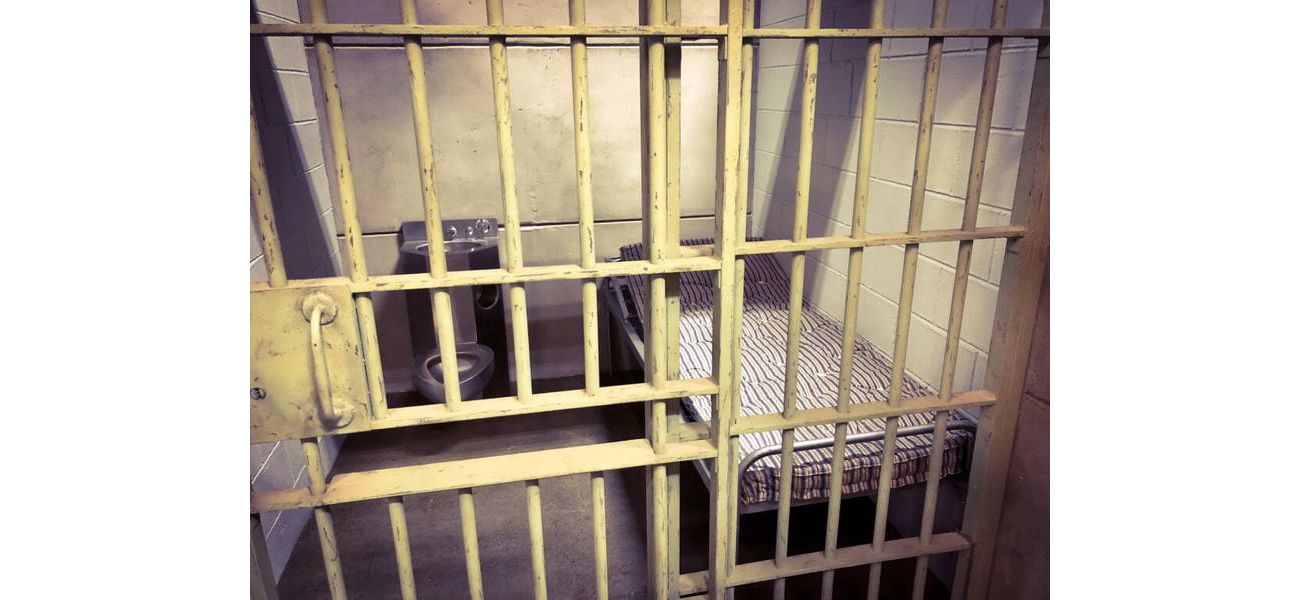Black women are facing increased poverty due to the burden of prison debt being passed down to them.
Study shows how debt from prison disproportionately hurts Black women.
August 21st 2025.

New research has been conducted that sheds light on the impact of prison debt that has been passed down to the loved ones of incarcerated individuals, particularly Black women. It has been discovered that due to the high percentage of Black people in the local jail and state prison population - which stands at 37% - the fees associated with incarceration are causing many women of color to fall deeper into poverty. The recent report from the Prison Policy Initiative has brought to attention how prison debt, which includes charges for housing and medical care, is disproportionately affecting families and has a heavier impact on Black women.
According to the findings, women, especially Black women, are bearing the brunt of "pay-to-stay" policies in the majority of states. Recent studies have shown that 83% of those who are responsible for paying fines, fees, and bail for their incarcerated loved ones are women. The income of these women drops significantly after their loved ones are convicted, compared to men.
The burden of prison debt is further exacerbating the racial wealth gap, as Black mothers are three times more likely than white mothers to be the sole provider for their families. This means that the impact of passed-down prison debt is even more severe for these families.
Campaign Zero's executive director, DeRay Mckesson, explains that incarcerated individuals are unable to fully pay off their fees while in prison, causing the costs to accumulate as debt that they are still expected to repay after their release. This puts immense pressure on these families and can lead to further financial struggles.
Advocates have also raised concerns about some states allowing debt collectors or probation officers to demand full repayment within just 30 days. This often results in the debt being passed on to taxpayers, who end up covering the costs of expensive legal efforts that rarely recover the money.
The issue of prison debt is not limited to a few states, as data shows that 48 states have at least one "pay-to-stay" fee, 42 states and D.C. charge incarcerated adults for room and board, and 43 states impose medical fees on those behind bars. These fees are automatically deducted from prison accounts or wages, but with most incarcerated individuals earning less than $1 a day, the balances quickly pile up and often follow them long after their release.
Brittany Friedman, a sociologist at USC who leads the Captive Money Lab and served as a consultant on the Campaign Zero project, explains that they were the first to bring this issue to light. While many were discussing the issue of mass incarceration, the impact on families was being overlooked, with loved ones having their college funds and inheritances seized.
Advocates are now speaking out against these outdated "pay-to-stay" policies, many of which were established in the 1970s when states like Michigan and California aimed to shift incarceration costs off public budgets. The trend continued in the 1980s after federal funding cuts under President Reagan resulted in states charging incarcerated individuals for court-appointed counsel, supervision, meals, and phone calls.
While some argue that these fees help cover victim restitution or public services, the majority of the burden falls on loved ones and taxpayers, even in cases that are victimless, such as drug possession. Nick Shepack, the Nevada director for the FFJC, states that these fees were not designed to promote safety or rehabilitation, but rather to cut budgets - and they continue to do so.
However, there are some positive developments as some states are taking steps to roll back these fees. For instance, Oklahoma recently passed a bill that eliminates many charges, Maryland Governor Wes Moore waived $13 million in unpaid probation fees earlier this year, and Nevada has capped the amount of money prisons can take from family deposits and has put an end to collecting post-release medical debt. These changes offer hope for a more just and fair system for all.
According to the findings, women, especially Black women, are bearing the brunt of "pay-to-stay" policies in the majority of states. Recent studies have shown that 83% of those who are responsible for paying fines, fees, and bail for their incarcerated loved ones are women. The income of these women drops significantly after their loved ones are convicted, compared to men.
The burden of prison debt is further exacerbating the racial wealth gap, as Black mothers are three times more likely than white mothers to be the sole provider for their families. This means that the impact of passed-down prison debt is even more severe for these families.
Campaign Zero's executive director, DeRay Mckesson, explains that incarcerated individuals are unable to fully pay off their fees while in prison, causing the costs to accumulate as debt that they are still expected to repay after their release. This puts immense pressure on these families and can lead to further financial struggles.
Advocates have also raised concerns about some states allowing debt collectors or probation officers to demand full repayment within just 30 days. This often results in the debt being passed on to taxpayers, who end up covering the costs of expensive legal efforts that rarely recover the money.
The issue of prison debt is not limited to a few states, as data shows that 48 states have at least one "pay-to-stay" fee, 42 states and D.C. charge incarcerated adults for room and board, and 43 states impose medical fees on those behind bars. These fees are automatically deducted from prison accounts or wages, but with most incarcerated individuals earning less than $1 a day, the balances quickly pile up and often follow them long after their release.
Brittany Friedman, a sociologist at USC who leads the Captive Money Lab and served as a consultant on the Campaign Zero project, explains that they were the first to bring this issue to light. While many were discussing the issue of mass incarceration, the impact on families was being overlooked, with loved ones having their college funds and inheritances seized.
Advocates are now speaking out against these outdated "pay-to-stay" policies, many of which were established in the 1970s when states like Michigan and California aimed to shift incarceration costs off public budgets. The trend continued in the 1980s after federal funding cuts under President Reagan resulted in states charging incarcerated individuals for court-appointed counsel, supervision, meals, and phone calls.
While some argue that these fees help cover victim restitution or public services, the majority of the burden falls on loved ones and taxpayers, even in cases that are victimless, such as drug possession. Nick Shepack, the Nevada director for the FFJC, states that these fees were not designed to promote safety or rehabilitation, but rather to cut budgets - and they continue to do so.
However, there are some positive developments as some states are taking steps to roll back these fees. For instance, Oklahoma recently passed a bill that eliminates many charges, Maryland Governor Wes Moore waived $13 million in unpaid probation fees earlier this year, and Nevada has capped the amount of money prisons can take from family deposits and has put an end to collecting post-release medical debt. These changes offer hope for a more just and fair system for all.
[This article has been trending online recently and has been generated with AI. Your feed is customized.]
[Generative AI is experimental.]
0
0
Submit Comment





